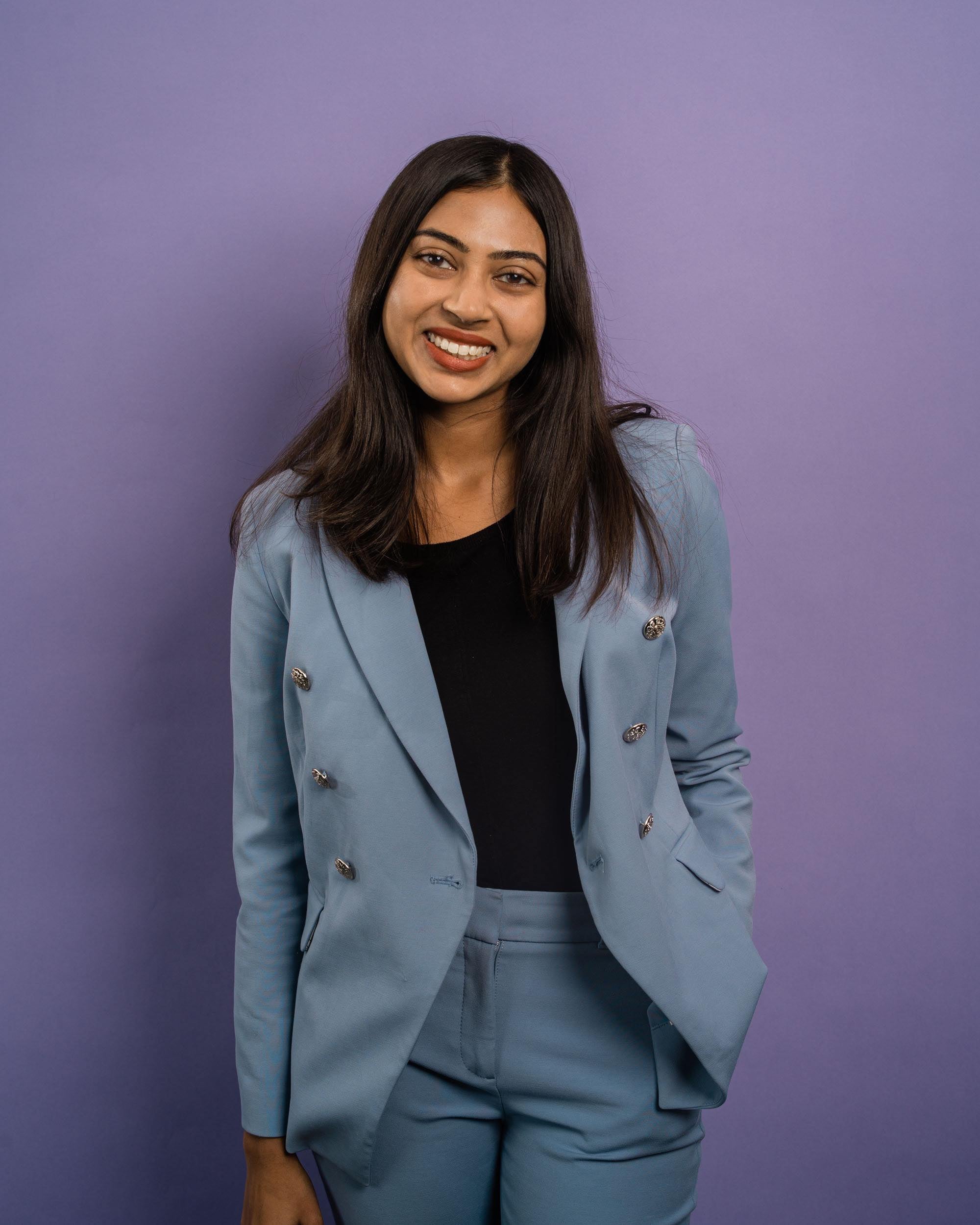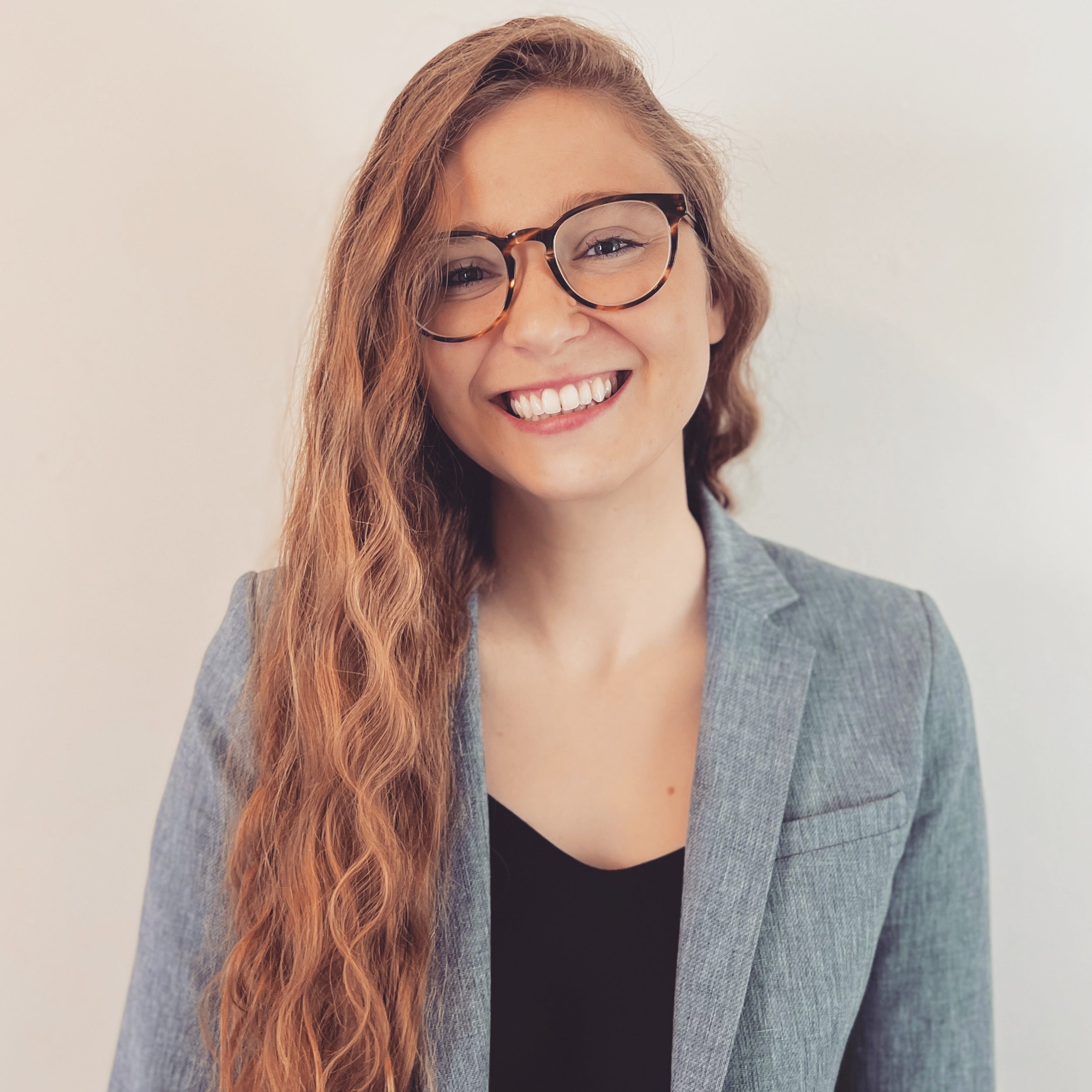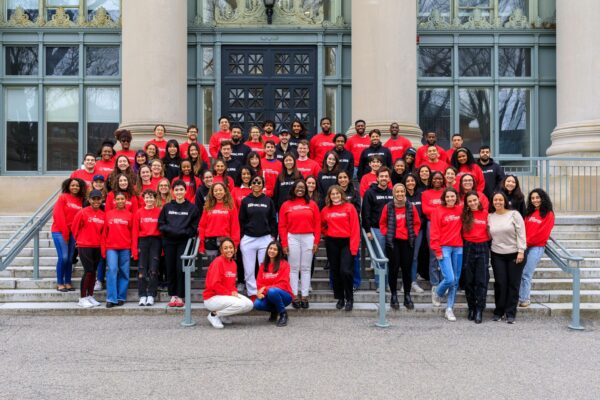The moment that Apoorva Krishnan ‘23 and Molly Crane ‘23 found their way to their first Harvard Defenders meetings, they knew they had found the community they were looking for on campus.

Coming to law school with a keen interest in public defense work, Krishnan joined Defenders her first semester of 1L year. “Talking to students involved in Defenders, it was clear that, first and foremost, they cared so much about their clients,” she recalls. “The way they spoke about criminal defense work related to broader ideas of anti-carceral values and abolition which I hadn’t encountered in another organization or legal space before.”
For Crane, Defenders offered the community she had been searching for on campus: “When I first came to HLS as a transfer student, it was very intimidating. The people at Defenders really made me feel at home and made me feel like I had a place to belong. They’re so committed to their values, not only when it comes to representing clients, but also how they implement those values with one another.”
Harvard Defenders is one of Harvard Law School’s eleven Student Practice Organizations (SPOs), founded in 1949 with a mission that has proved everlasting—providing pro bono services to indigent criminal defendants in Massachusetts. Today, the organization’s goal is to reduce the harm of the criminal legal system on community members through client-centered, compassionate, and persuasive legal practice. As a part of this mission, student attorneys represent their clients in show-cause hearings and assist them in completing Criminal Offender Record Information (CORI) sealings.
Students can join Defenders beginning their 1L year. Along the way, they receive mentorship and supervision from senior clinical instructor John Salsberg as well as support from their fellow student attorneys. Krishnan and Crane both began their time as Defenders learning from student leaders as they gained experience in show-cause hearings and the CORI sealing practice. Since then, they have become leaders within the organization themselves—Krishnan served as Executive Director this year, and Crane acted as Co-Director of CORI Sealing.
Every part of the organization’s work is a community effort, says Krishnan. “Everybody in Defenders is so generous with their time, both with our clients, but also with each other. It’s never a competitive atmosphere. The way people deal with conflict really reflects our values of transformative justice, which expands to how we treat our clients as well. It’s something that I’ve been super grateful to be a part of.”

“There are so many people who work on every case behind the scenes,” she continues. “When we have mock hearings before students go to their actual hearings, people come during their day, on their lunch hour. It’s amazing to hear how much knowledge is in our organization, and to see how we help each other through the process.”
“Defenders is a place where you can not only be a part of a community, but you can also build the community that you want to see,” says Crane. “I think people come to Defenders because they want to see greater justice and an end to the racist criminal legal system. And this is a place where people can actually work on making that happen.”
Client-centered advocacy
Clients are at the heart of Defenders’ work. Placing a priority on the methods and outcome that clients want for their cases is a critical element of how students approach every case, says Krishnan.
“I had a client who didn’t want to be at her hearing because it would have been a very re-traumatizing process for her, with the complaining witness being someone who she had formerly been in a relationship with. It was clear that she wanted us to represent her in her absence, and we prioritized convincing the court to waive her appearance. Things like that, just sitting down and really understanding the little things that might be our clients’ priorities is something that I really appreciate that we do.”
In a legal system that often creates an uphill battle for criminal defense work, Defenders emphasizes the significance in the process of representing clients, not just the outcomes of that process, says Krishnan. “It’s important for us to strike a balance between being a good giver of advice and most of all respecting your client’s wishes,” she reflects. “You have to be willing to put aside your own preconceptions of what’s going to be a successful outcome in a case, and instead center what your client wants you to do. It’s sometimes easier said than done, and it’s something that we are all very reflective about and constantly interrogating.”
“The most meaningful moments for me are the ones when we’re able to make our clients feel seen and heard and valued, whether or not the outcome is just,” Crane concurs. “We know that even if we work hard, the systems aren’t built for our clients to succeed.”
Building relationships with clients over the course of their time being represented by Defenders has been the most rewarding part of the work for Crane—listening with an empathetic ear is the most critical part of representation, she says.
“The criminal legal system often tries to reduce our clients to a single narrative. I love the opportunity to get to learn more about the whole person and their comprehensive goals. Our partnership with clients means also showing up for things that don’t necessarily relate to their case. I’ve had clients invite me to their daughter’s recital, or to be there on the day that they get their apartment for the first time. It’s really about showing up for people, and that’s part of what this allows us to do.”
CORI sealing practice
Over the last several years, Defenders has built out their CORI sealing practice, which Krishnan led last academic year and passed on to Crane this year. CORI records contain information about convictions and non-convictions, meaning that even if an individual is not found guilty, the incident will remain part of their record. These records can make obtaining employment, housing, licensure, public benefits, and more very difficult. In Massachusetts, CORI records can be sealed after a certain number of years, depending on the type of charge— “Not exactly scrub it out like an eraser, but close it like an envelope,” Crane describes.
Many clients are not aware that their records can be sealed, and Defenders has assisted individuals to seal records from over fifty years ago. This year, Defenders worked on over 60 CORIs, the most in a year so far for the organization. The CORI sealing practice has become deeply integrated into the SPO’s work; many Defenders students are part of a CORI working group, and the organization has also been working with advocacy groups in legislative work to make the entire CORI process more just.
The CORI sealing process is essential to Defenders’ mission, says Crane: “We see Defenders as responding to harm in two ways: one is trying to prevent people from experiencing the harm of the system in the first place, and the other is trying to loosen the chains of the system after people have already been through it.” The CORI sealing practice touches on the latter goal, alleviating some of the burden the criminal legal system inflicts upon those it touches.
The CORI work in Defenders focuses on meeting clients wherever they are. In recent years, Defenders has built relationships with organizations including St. Francis House, Pine Street Inn, Upham’s Corner, and even the Boston Mayor’s Office, and Defenders works alongside these organizations to go out into the community and provide CORI support. Now that the CORI infrastructure has been built and collaboration with community organizations has increased awareness about the service, Crane hopes that even more records will be sealed in the coming years.
“As I’m leaving Defenders and thinking about the CORI practice, it’s been beautiful to see how it’s grown of the years,” Crane reflects. “We did a handful of CORIs a few years ago, and now we’re up to sixty, and so many new Defenders members are eager to carry it forward. So I’m just hopeful for what will come next.”
“In CORI representation, you get to build a holistic relationship with your clients and learn about their hopes. It’s empowering to say, what are your goals, and how can we partner with you to get there?” she says. “I had a client who had been experiencing homelessness for several decades, and we were able to seal her CORI, and I’m deeply grateful that now she’s in permanent housing. It was really transformational to see how well she’s doing.”
These interactions with clients also stick out to Krishnan, who emphasizes the importance of clinical experiences during law school to gain critical perspective and skills. “The more practice you have working with people in very vulnerable positions going through a very dehumanizing process, the more you learn. I will never forget that throughout my legal career.”
As they looked ahead to Commencement, these students already know that they are going to miss the invaluable Defenders community. “If I’m on campus, I’m usually in the Defenders office,” says Krishnan. “I know those people are going to be the people I want to talk to. It’s such a nice community to spend time in.”
Filed in: Clinical Spotlight
Tags: Class of 2023, Harvard Defenders
